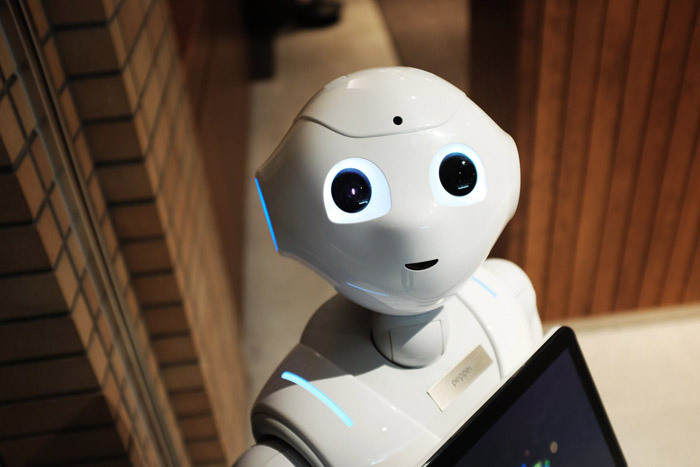People love theorizing about what lies ahead. That’s one of the qualities that pushed human evolution forward according to some studies on chimps behavior. The Cognitive Tradeoff hypothesis states that we traded our short term memory for other features like complex social communication skills (aka languages) and more abstract thinking, kind of thinking ahead rather than reacting to a given situation immediately. According to the hypothesis, our predecessors abandoned the forest and moved to open and more dangerous places which required the mentioned skills for survival.
This theory has some inconsistencies, but nevertheless, there’s definitely some truth to it. At least, the part where we are trying to predict the future. Alas, sometimes people don’t really like what they see in the crystal ball, and some technical writers are genuinely scared of the direction things have taken now.

A Series of Unfortunate Events?
Just look how fast machine learning is developing!
Some can’t help but wonder whether machines are going to replace human technical writers in the short term. While AI seems to suck at writing poetry, user manuals are nothing like poetry, it’s the opposite of that. Technical texts lack vividness and emotional coloring and consist of dry facts. They are very much repeatable, strictly structured, severely logical, extremely concise and unbearably straightforward. Sounds like something a machine could manage!
Although neural networks were the long-awaited breakthrough after many AI researchers hit a dead-end some decades ago, this technology is still flawed and raw. We can feed data to a neural network, but it is a black box from this point forward. The machine is evolving and learning on its own, we don’t control this. Data we are feeding to the AI needs to be plentiful and thoroughly-checked. When we are talking about big data, checking it all is impossible. This and many other factors cause issues with neural networks. So, no, neural networks don’t pose any immediate threat to technical writing experts.
Phew! With that figured out, we can finally chillax for a decade or so…Wait, what?! What haptic interfaces?

Let’s Touch Upon Haptic
Haptic technologies are also called 3D touch and kinaesthetic communication. This covers any technology relying on touch (forces, motions, vibrations) as a means of interacting with virtual objects. In fact, joysticks and game controllers are also haptic. For the sake of this post, we will focus only on the emerging technology that still feels futuristic, like haptic interfaces.
This theme has been largely abused by the film industry. Seems like sci-fi obligates movie makers to showcase haptic interfaces. And, now, this cinematic technology is creeping into our reality. Not our everyday lives, perhaps, not to the full extent the movies show us yet, but many of us have some experience with haptic.
The most vivid experiences are happening around VR-based entertainment. Well, its job is to impress you, so, that’s understandable. I remember the excitement of manipulating a VR interface with my own hands using gestures. If haptic interfaces keep developing, in theory, they can become super intuitive. That’s the main point of haptic – interacting with an app like with any other object in real life, no instructions needed.
Can this banish user manuals Very unlikely. What might happen is the redistribution of resources as in less technical documentation for end-users and still plenty of it for people involved in development processes for the same haptic interfaces. Plus, technical writing covers so many aspects of our lives while some of them like government and science, for example, can hardly be influenced by haptic technology in this sense. Some data just doesn’t translate well into kinaesthetic.
Conclusion
Our world without technical documentation will become a dreadful place. And, passing knowledge is what humans do to make sure our species survive. If we strip away everything extra, technical writing is exactly about teaching and communicating data, and, luckily, there’s no way around it for humanity.
Hopefully, the image in the crystal ball has become a little clearer and less worrying for our fellow techcomm people.
Good luck with your technical writing!
ClickHelp Team
Author, host and deliver documentation across platforms and devices



